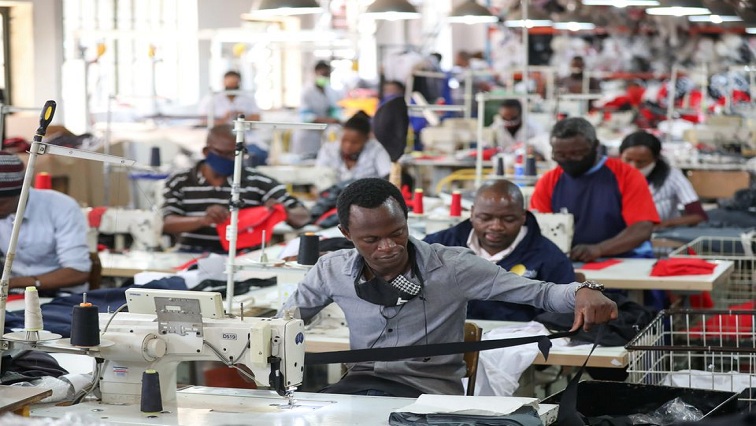A leading African economist says the continent needs to fast track digital technology if it is to achieve economic development and increase Intra-Africa trade.
Chief Economist at Afreximbank, Hippolyte Fofach says Africa also needs to close its technology gap to reach its Africa Continental Free Trade Agreement goals.
Speaking with other panelists including South Africa’s Minister of Trade and Industry Ebrahim Patel, the economist elaborates how embracing digitisation can play an important role in unlocking Intra-Africa trade.
“And if you look at genetic engineering and robotics all those are applications of IT at a different level. They will help Africa address its productivity and competitiveness. We see trade increasingly driven by manufactured goods with increased technological content which today accounts for 80% of global trade.”
Minister of Trade and Industry Ebrahim Patel asks, “Is Africa going to be serviced by Ali Baba? Is Africa going to be serviced by Amazon or is the fourth industrial revolution going to give Africa an opportunity for African giants to develop in these critical players or platforms? Then we need software development because the 4th industrial revolution is going to be about developing.
“BMW in South Africa some of their most significant employment is in the digital skills area. Mercedes-Benz told me that they have a larger number of people with digital skills in South Africa than in any of their non-German plants anywhere in the world,” Patel explains.
Shamira Ahmed is a Trade specialist Economist at Research ICT Africa. She highlights sectors that will be more susceptible to automation in Africa.
“Most of them are characterised by labour force that is engaged in repetitive administrative and often predictive environments. Some of these sectors financial services, agro-processing, supply chain and logistics and the retail sectors. Deployment of technology needs to be balanced with other developmental outcomes and priorities such as job creation.”
Ainojie Irune is COO of Oando Energy Resources. He says Africa needs to skill and educate its new generation in digital technology if it wants to catch up to the 4th industrial revolution:
“The continent, not just Nigeria, has a huge problem and I speak particularly to education. There is a digital revolution and the signs ahead of us are very simple, every single industry will be disrupted. The world has moved on especially to developed country’s and they have glued on to this fact. The question is who achieves that goal for Africa? What we need to think about in Africa is how we process success, how we create a template to ensure that path is available for more Africa, how we see the skilling of our future generation.”
In 2018, African countries signed a landmark trade agreement, named the African Continental Free Trade Area Agreement (AfCFTA). The agreement commits the 54 African countries to remove tariffs on 90% of goods. When completely finalised it will create a single continental market for goods and services, with free movement of business, persons and investments.
Patel says they are awaiting African heads of state to approve the movement of 88% of products from the 54 separate economies. Once the rules of origin for these products have been agreed upon, countries can start trading on them as early as next year.


